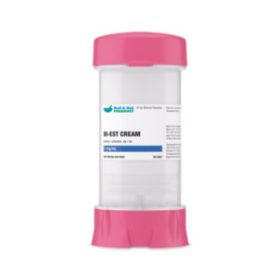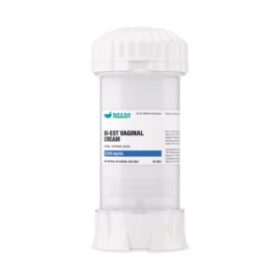Thyroid Desiccated Porcine Capsule (Immediate Release / Slow Release) (Each)
These hormones influence almost every system in the body, regulating metabolism, supporting bone growth, and maintaining many other essential processes. T4 is largely inactive and must first be converted into T3 before it can take effect.
Unlike many other hormones that target specific organs, thyroid hormones have widespread effects across the entire body. Their impact can be seen in several systems:
1. Cardiovascular system
They also enhance calcium entry into heart muscle cells, further boosting strength of contraction. They also activate the renin-angiotensin-aldosterone system, which increases blood volume by enhancing fluid reabsorption.
2. Respiratory system
It also enhances red blood cell formation by improving the absorption of folate and vitamin B12 in the gut. Additionally, thyroid hormones stimulate breathing rate and minute ventilation during increased energy demand, ensuring oxygen levels remain stable.
3. Metabolism
High T3 levels increase metabolism and body heat, explaining the sweating seen in hyperthyroidism.
4. Nervous system
In the peripheral nervous system, T3 increases reflex speed and gastrointestinal motility. It also enhances muscle function by stimulating the production of fast-twitch (Type II) muscle fibers. In the brain, T3 supports alertness, responsiveness, and cognitive function. During development, it plays a critical role by promoting axon growth and myelin formation, both essential for proper nerve signaling.
5. Skeletal system
During pregnancy, T3 is vital for fetal bone growth. In children, it drives linear bone growth, ossification, and maturation of growth centers. A deficiency in childhood can cause permanent stunted growth, even if treatment is started later.
6. Reproductive system
Thyroid hormones are also important for fertility.
Because thyroid hormones are so deeply involved in multiple systems, it is essential to keep their levels within a healthy range. Normal T3 levels are usually between 100–200 ng/dL, though this may vary with age and gender. When T3 levels fall too low, a condition called hypothyroidism occurs, and thyroid hormone supplements may be required to restore balance and prevent widespread disruptions in body functions.
The hypothalamus, specifically the paraventricular nucleus, produces and releases a small tripeptide called Thyrotropin-Releasing Hormone (TRH). TRH travels through the portal capillary plexus to the anterior pituitary gland, where it stimulates thyrotroph cells to release Thyroid-Stimulating Hormone (TSH).
This conversion is carried out by enzymes called deiodinases, which remove an iodine atom from T4:
Type II deiodinase is concentrated in the brain and adipose tissue, ensuring these organs always have enough active T3 for proper function.
Once produced, thyroid hormones act on target tissues through two main nuclear receptors: Thyroid Receptor alpha (TR-α) and Thyroid Receptor beta (TR-β). Both receptors allow thyroid hormones to influence gene activity, but their distribution differs:
TR-β is expressed in the liver, pituitary gland, and hypothalamus.
Inside a target cell, thyroid hormones enter the nucleus and bind to either TR-α or TR-β. This hormone-receptor complex alters gene transcription, leading to the production of messenger RNA and proteins that bring about the hormone’s effects.
However, thyroid hormones also have faster, non-genomic effects. In this pathway, they bind to a cell membrane receptor known as Avb3, which activates signaling cascades such as the MAP kinase (ERK1/2) pathway. This influences ion transport, cell growth, and proliferation, expanding the range of thyroid hormone activity beyond gene regulation.
Before giving exterior thyroid hormones, one should give certain considerations. Some of these are an overall Contraindication to thyroid hormone treatment is true for some; others may need near and careful monitoring. These include:
Giving thyroid hormones to patients with obvious hypersensitivity to the hormone or other chemicals in the preparation should be done with utmost caution.
Untreated adrenal insufficiency patients should not be given thyroid hormone replacement as this can bring on an acute adrenal crisis.
Cardiovascular disease: Because thyroid hormones have cardio stimulatory effects, patients with cardiac conditions should be cautious starting thyroid replacement treatment.
Diabetes: In diabetics, thyroid hormone treatment might cause blood sugar levels to be disturbed such that a modification of the diabetic drugs is advised.
Because T3 and T4 are mostly excreted by the kidneys, care should be taken to avoid toxicity while giving thyroid hormones. Those whose renal function is compromised in any way.
Gastrointestinal diseases: GI conditions including celiac disease and Helicobacter pylori can compromise the intestinal tract and limit the absorption of orally consumed thyroid hormone.
Generally speaking, people tolerate thyroid hormone replacement well. Some people, nevertheless, may experience modest side effects including irritation, nausea, diarrhea, fatigue, flushing, among others. Some people could have more severe responses including atrial fibrillation, seizures, cardiac arrest, and thyrotoxicosis; development of these severe negative reactions calls for quick medical care.
Women using thyroid hormone replacement during pregnancy have seen no reported significant birth abnormalities or miscarriages. Thyroid hormone replacement is advised in pregnancy if the need arises because hypothyroidism in pregnancy poses a bigger threat to both mother and fetus.
Exogenous thyroid hormones are also expressed in breast milk; nevertheless, research done has not shown any negative consequences in nursing babies.
Store this medication at 68°F to 77°F (20°C to 25°C) and away from heat, moisture and light. Keep all medicine out of the reach of children. Throw away any unused medicine after the beyond-use date. Do not flush unused medications or pour down a sink or drain.
- Armstrong, M., Asuka, E., Fingeret, A., “Physiology, Thyroid Function”, StatPearls. Treasure Island (FL). Available: https://www.ncbi.nlm.nih.gov/books/NBK537039/– LinkOpens in New Tab
- Shahid, M.A., Ashraf, M.A., Sharma, S., “Physiology, Thyroid Hormone”, “, StatPearls. Treasure Island (FL). Available: https://www.ncbi.nlm.nih.gov/books/NBK500006/– LinkOpens in New Tab
- Williams, G.R., “Thyroid Hormone Actions in Cartilage and Bone”, European Thyroid Journal, vol.2 issue 1, pp. 3-13. 2012. Available: https://www.ncbi.nlm.nih.gov/pmc/articles/PMC3821494/– LinkOpens in New Tab
- Basile, L.,M., “What are T3, T4, and TSH?”, Endocrine Web. Available: https://www.healthcentral.com/condition/thyroid/thyroid-what-are-t3-t4-tsh?legacy=ew– LinkOpens in New Tab
- Mohan, S., Kim, H., “Role and Mechanisms of Action of Thyroid Hormone on the Skeletal Development”, Bone Research, vol.1, pp. 146 – 161. Available: https://www.nature.com/articles/boneres201311– LinkOpens in New Tab
- Yen, P.,M., “Physiological and Molecular Basis of Thyroid Hormone Action”, Physiological Reviews, vol.81 issue 3, pp. 1097 – 1142. 2001. Available: https://journals.physiology.org/doi/full/10.1152/physrev.2001.81.3.1097– LinkOpens in New Tab
- Brent, G.,A., “Mechanisms of thyroid hormone action”, Journal of Clinical Investigation, vol.122, issue 9, pp. 3035-3043. 2012. Available: https://www.ncbi.nlm.nih.gov/pmc/articles/PMC3433956/– LinkOpens in New Tab
- ”Levothyroxine”, Drug Bank. Available: https://go.drugbank.com/drugs/DB00451– LinkOpens in New Tab
- Colucci, P., Yue, S.C., Ducharme, M., Benvenga, S., “A Review of the Pharmacokinetics of Levothyroxine for the Treatment of Hypothyroidism”, European Endocrinology, vol.9 issue 1, pp. 40-47. 2013. Available: https://www.ncbi.nlm.nih.gov/pmc/articles/PMC6193522/– LinkOpens in New Tab
- ”Levothyroxine sodium – Drug Summary”, Prescribers Digital Reference. Available: https://www.pdr.net/drug-summary/Levothyroxine-Sodium-Injection-levothyroxine-sodium-3865– LinkOpens in New Tab
- ”Levothyroxine Pregnancy and Breastfeeding Warnings”. Available: https://www.drugs.com/pregnancy/levothyroxine.html– LinkOpens in New Tab





